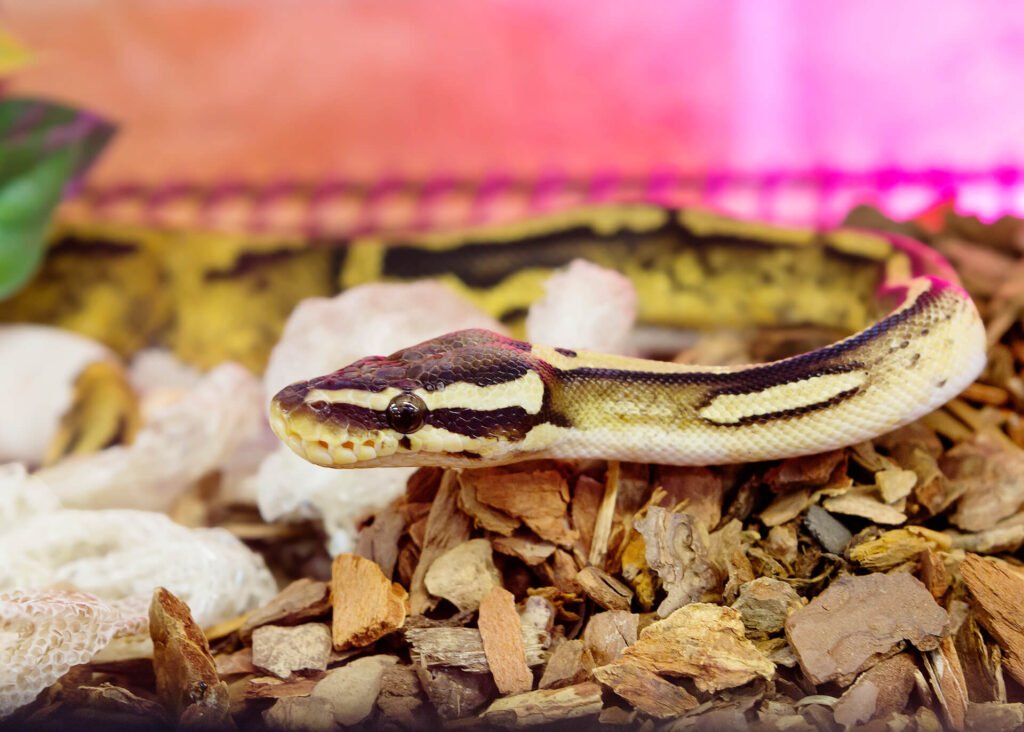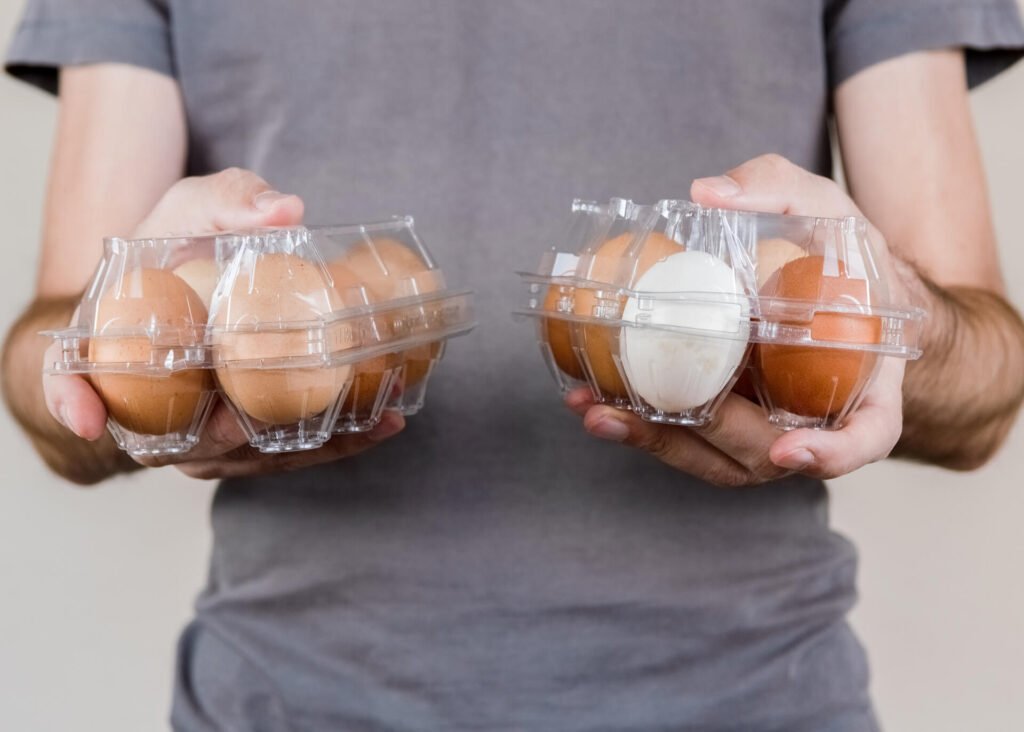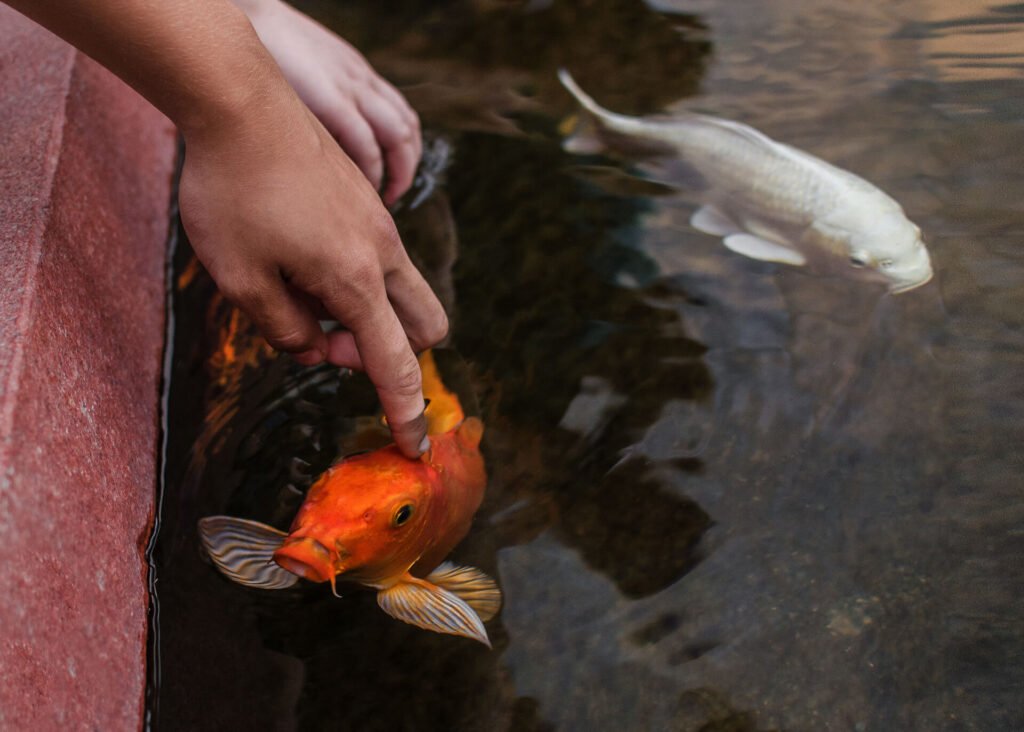24 Funny Chinese Words That Will Make Your Friends Laugh Out Loud

Are you looking to expand your Mandarin vocabulary? How about learning some funny Chinese words and phrases that you typically won’t find in books? These funny Chinese sayings are humorous, so when you chat with your Chinese friends, slip them in for a big laugh!
When studying foreign languages, some of the first words you learn are the names of animals. And while the horse, goose, and cat are all basic vocabulary words, did you know that sometimes they have different meanings depending on the context? So while the following Chinese phrases have something to do with animals, they might mean the complete opposite of what you would assume!
1. 缘木求鱼 – Yuán mù qiú yú
The saying 缘木求鱼 yuán mù qiú yú in Mandarin Chinese means to do something that cannot be done or is impossible. This sentence translates as “climb a tree to catch a fish.”
For example, your friend tells you that they want to go to the prestigious Beijing University. Still, they have the lowest test scores in the entire class. With an acceptance rate of only 1%, this is where you would laugh at your friend and tell them that it’s a lost cause. It’s a losing battle, and they might as well go fishing atop a tree and still have the same result as getting into this university.
2. 露马脚 – Lòu mǎ jiǎo
There are so many funny Chinese words that are about horses. One of them is 露马脚 lòu mǎ jiǎo which means to “expose horse legs.” This idiomatic expression means to have your plans revealed or that a person’s true purpose or real intention has come into the limelight. Typically, this phrase has a negative meaning and indicates that someone’s exposed motives are evil or ill intent. Nonetheless, the horse’s legs are open for all to see and judge.
3. 拍马屁 – Pāi mǎ pì
Another one of the many funny Chinese words related to a horse is 拍马屁 pāi mǎ pì, or to “beat the bottom of a horse.” It means that the person is a suck-up or a total kiss-ass.
When one of the students is constantly raising their hand to answer questions and trying to be a teacher’s pet, it is the perfect example of someone doing 拍马屁. While, in some cases, a bit of well-deserved flattery can be nice, this expression has a generally negative meaning to it.

4. 沉鱼落雁 – Chén yú, luò yàn
In English, when someone is beautiful beyond words, we call them stunning, alluring, or even “drop-dead gorgeous.” However, in Chinese, we take it one step further and say 沉鱼落雁 chén yú, luò yàn. This saying means they “make the fish sink in the water and the geese fall from the sky.”
Although, when translated 沉鱼落雁 sounds pretty funny, the saying originates from the traditional Taoist author 莊子 (Zhuāng Zǐ), who was a very influential philosopher during the Warring States period.
5. 三脚猫 – Sān jiǎo māo
Have you ever had a teacher or professor that is an excellent instructor but has no working knowledge of the field? If so, then the 三脚猫 sān jiǎo māo proverb perfectly describes this case.
In Mandarin, we call someone who has working knowledge but lacks professional skills a 三脚猫 or a “three-legged cat.” In theory, all cats should know how to hunt mice very well. However, the 三脚猫 is unable to do so. A cat can only hobble with three legs and perhaps just pass his knowledge of mouse-hunting down to his kittens. This sentence is similar to the English saying, “Those who can’t do, teach.”
6. 吹牛 – Chuī niú
吹牛 chuī niú is another one of the many funny Chinese words that have something to do with animals. The literal meaning of this term that native Mandarin speakers often use is to “blow the cow.” Unsurprisingly, it can be tricky to understand the first time you hear it with no context.
What 吹牛 actually means is to brag, boast, or flaunt impressive details about oneself. This term typically carries a bit of negative meaning. Some examples of what can be considered 吹牛 would be bragging about money, social status, or one’s job on social media.
7. 风声鹤唳 – Fēng shēng hè lì
In Mandarin Chinese, there is a great saying, 风声鹤唳 fēng shēng hè lì, which describes someone who is easily spooked. If you use it, everyone will be very impressed. This expression means “startle at the sound of the wind, and cry at the honk of the stork.”
Of course, it takes some bravery to use such a high-level word in daily Mandarin conversation. So if you are a bit 风声鹤唳 yourself, then maybe this phrase is not for you.

Everyday silly sayings
Some funny Chinese words and sayings describe everyday situations, and Chinese people love to slip them into their daily conversations. Once you start using them, you’ll notice a massive change in how people interact with you. Throwing them into casual conversation shows that you have tons of experience speaking Chinese and have a fast mind.
8. 独一无二 – Dú yī wú èr
Many funny Chinese words are a tad cryptic and require a deep understanding of Chinese culture. However, the phrase 独一无二 dú yī wú èr is pretty straightforward. Literally translated as “just one but not two,” this idiom expresses the notion of being unique or one-of-a-kind. Something 独一无二 is so uniquely special that there is only one in the entire universe, and hence not a second.
9. 画蛇添足 – Huà shé tiān zú
Chinese history is a big part of Chinese culture and has largely influenced how people speak and the phrases that we use even to this day. The funny saying 画蛇添足 huà shé tiān zú comes from the Warring States Period. The story goes that one day two servants were competing in a snake-drawing competition for their master over a bottle of wine.
The first servant finishes painting his snake before anyone else. In an extra act of cocky showmanship, he paints legs on his snake to show off. However, when the master sees his painting of a snake, he laughs and says, “You fool! Snakes do not have legs! And therefore, you have not painted a snake!” And therefore, the other servant is declared the winner of the contest.
It is from this story comes the expression 画蛇添足, which can be translated as “to paint legs on a snake.” Sometimes, adding too much to something can ruin the result, so it is important to know when to stop.

10. 天花乱坠 – Tiān huā luàn zhuì
The common idiom 天花乱坠 tiān huā luàn zhuì in the Chinese language describes a scenario where someone is exaggerating or embellishing the truth. This is not limited just to lying but also to times when certain words or details are left out of a statement to mislead you into believing events were not as they were.
Chinese people don’t “stretch the truth” when telling a story. Instead, they “talk as if the heavens were raining flowers,” which is the literal meaning of this saying.
11. 落汤鸡 – Luò tāng jī
In Chinese, the verb 落 means to drop, 汤 means soup, and 鸡 is a chicken. So when the three Chinese words are combined to make 落汤鸡 luò tāng jī, does it mean to drop a rooster into the soup? Or perhaps is it the name for a typical Chinese food?
What 落汤鸡 actually means is to be soaking wet or absolutely drenched. When a person gets soaked by the rain, they look pitifully like a wet chicken.
12. 半斤八两 – Bàn jīn bā liǎng
The Mandarin Chinese idiom 半斤八两 bàn jīn bā liǎng is used for comparing two things that are essentially the same. The English translation of this sentence would be “Six of one, half-dozen of the other.” Therefore, if you look at the Chinese words on their own, it becomes easy to see where this expression comes from.
Both 斤 and 两 are units of weight. Therefore, one 斤 is equal to sixteen 两. So when we add the other words in the expression, 半 (half) and 八 (eight), the meaning is that “half of a jīn is equal to eight liǎng.” In other words, the two items are precisely the same or have the same meaning.

Wacky Chinese expressions about work
Are you looking for some funny Chinese words to use at work? With these wacky phrases, you can communicate when work seems like hell and you need to vent!
13. 杀鸡吓猴 – Shājī-xiàhóu
What do you think that would imply if you hear your boss “kills a chicken to frighten a monkey” at work?
The phrase 杀鸡吓猴 shājī-xiàhóu means to “make an example out of someone” or punish a single individual in order to scare the rest of the group. For example, if a boss fires an employee on the first day of work after they are just a couple of minutes late. Clearly, the boss is sending a message to the rest of the workers. Therefore, they don’t actually care so much about the individual delay of just a single employee.
14. 炒鱿鱼 – Chăo yóu yú
Imagine that one of your buddies you meet after work tells you 我被炒鱿鱼了wŏ bèi chăo yóu yú le or that they have “had their squid grilled.”
“Yum!” you exclaim. But, unfortunately, you have read the situation completely wrong, and now your friend feels even worse.
In Chinese, despite the literal meaning of “grilling squid,” the expression 炒鱿鱼 chăo yóu yú means getting fired or firing someone from a job. This funny Chinese phrase can be misleading if taken out of context, so many people still learning Chinese may not understand it the first time they hear it. But hey, now you know!
15. 摸鱼 – Mō yú
Suppose somebody at your office gets fired. When you ask why that happened, your coworker tells you that they were 摸鱼 mō yú, which means “petting fish.” Well, that’s a weird and very particular thing to get fired for, isn’t it?
The saying 摸鱼 means slacking or loafing off when you have something more important to do. You procrastinate so much that you even give your aquatic friend a good pat before you are willing to get any work done.

Spicy sayings for certain situations
Say you are enjoying a great night out, having a drink or two, and then suddenly a complete stranger comes up to you and tries to ruin your evening. What do you say? You can immediately respond with a snappy comeback with the following quick-witted phrases.
16. 废话 – Fèihuà
The phrase 废话 fèihuà means that someone is talking nonsense in Chinese and that what they are saying does not matter. The first character is 废 which as an adjective means “waste.” The second one is 话, meaning “talk.” Put the two together, and you have “wasted speech,” which is funny to describe yackety-yak, yip-yap, or just wasted breath.
17. 吃醋 – Chī cù
If you say that someone is 吃醋 chī cù in Mandarin, it translates as “eating vinegar.” This phrase means that they are incredibly jealous. When you drink or eat raw vinegar, it is very sour. So your face is twisted into a pucker in the same way as when you see something unsavory that makes you jealous.
This expression is specifically used in the context of romantic relationships and is not just about being jealous in general. For example, if a beautiful girl walked up to your boyfriend and was playing with his hair and feeling his muscles, that would be the time and place that you would “eat vinegar.”
18. 傻蛋 – Shǎ dàn
If you are looking to insult someone, calling them a 傻蛋 shǎ dàn or a “stupid egg” is a pretty gentle jab that you can use with close acquaintances. This word means “idiot.” While not the most cutting insult, 傻蛋 can still be offensive in the wrong situation. Therefore it is best not to use it in places like school, the office, or in front of your mother.

19. 闭嘴 – Bì zuǐ
You often only learn correct, very polite Mandarin when you learn Chinese in school. Yet, it comes off as very awkward and rigid when conversing with native speakers. For example, the phrase 闭嘴 bì zuǐ literally translates to “close the mouth” and means to “shut up.” While this isn’t a cuss word, it is not very polite, so you should be careful when and to whom you use it. Otherwise, you may find yourself caught in some big trouble.
20. 装蒜 – Zhuāng suàn
The Chinese words equivalent to the English expression “play dumb” would be 装蒜 zhuāng suàn or “pretend garlic.” This can be used in several different situations. For example, a wife confronts her husband after discovering naughty text messages between him and another woman on his phone.
On all accounts, he denies having a mistress, and so the wife shows him the messages and shouts out 你别装蒜了,我什么都知道了!, which means “Don’t play coy with me, I know everything!”
This saying is very native sounding and will bring your Chinese language skills to the next level!
21. 长舌妇 – Cháng shé fù
In Mandarin Chinese, someone who is 长舌妇 cháng shé fùa is a person who is a gossip, a busybody, or just someone who enjoys spreading rumors and false news. 长舌妇 translates to “long-tongued woman.” No matter what a 长舌妇 has heard, she always has to tell it to someone else. So if you know a person who is a 长舌妇, it’s best to leave out intimate details about your personal life, or else it might end up all over town.

22. 涂鸦 – Tú yā
There are two characters in the word 涂鸦 tú yā. The first character 涂 tú means “scribble,” and the second character 鸦 yā means “duck.” But what is the real meaning of this funny-sounding Mandarin word other than this strange direct translation?
The word 涂鸦 translates as “graffiti.” Its origins date back to the Tang Dynasty when the son of the well-known Chinese Poet Lu Tong would draw on anything and everything he could get his hands on. In the poet’s book, he affectionately referred to his son as his “little duck,” and even nowadays, the word just stuck.
23. 你吃错药了吗?– Nǐ chī cuò yào le ma?
Is your friend acting strange or making thoughtless remarks? You can ask them 你吃错药了吗? nǐ chī cuò yào le ma? which means, “did you take your medicine?” There are loads of interesting Chinese slang expressions to call out other people’s questionable behavior, but using this one will surely make them laugh.
It is worth noting that English and Chinese use different words for “consuming medicine.” In English, you “take” medicine, but in Mandarin Chinese, you “eat” (吃) medicine.
24. 君子报仇,十年不晚 – Jūnzǐ bàochóu, shí nián bù wǎn
Have you ever been in a situation where you bit your tongue, worked hard and became super successful after being wronged? Some people may say that that is the best way to get revenge, and the idiom 君子报仇,十年不晚 jūnzǐ bàochóu, shí nián bù wǎn describes that.
While this Chinese expression is long, the meaning is pretty straightforward. The translation of this sentence is, “Even after ten years, it is still not too late for a gentleman to take his revenge.”
Essentially, 君子报仇,十年不晚 means that one must bide their time to get proper revenge. Another way to look at this saying is to compare it to the English “success is the best revenge.”
Although the two do not carry quite the same meaning, the spirit of the message is still very much on par with each other.
Making others chuckle while speaking a foreign tongue isn’t always easy. However, cracking jokes is one of the best things you can do to break through the Chinese language barrier and make some new friends.








